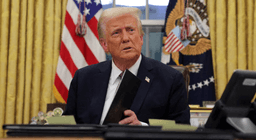Price raise decisions made in Ankara the day before at best represents panic. Private consumption tax for fuel was raised. Similarly, Value Added Tax imposed on food and beverages served in hotels were raised. This creates a "Where did I see this film before" feeling. It is like someone took a look at gradually worsening public budget figures and asked "What did we used to do in such situations" and immediately got the answer: "We raised the taxes on fuel, Sir". And so, it is what they did. However, the times we pursued this policy option are not at all similar to the current times. The difference is larger than the oceans.
Let us assess the possible outcomes of the raises: First, considering inflation rate which is not the concern of the current crisis, a shocking rise that will be reflected on the prices at around 10 percent is apparently not good. 10 percent of price shock, which was relatively less unfavorable in the periods with 70 percent inflation, is relatively more unfavorable now as inflation rate heads down to 5 percent level. Second, beyond inflation this wave of shock raises is certainly worse considering growth in the current period where almost the single measure we discuss to tackle the crisis is stimulating the domestic demand. It will affect adversely not only consumption but also employment. Third, it is not a good signal for credibility that the policy makers who took a step to enable more automobiles to be sold just yesterday, today increases the fuel expenditure of these automobiles. Either one of the decisions must be wrong. It is apparent that there exists a state of not knowing what you're doing. Fourth, deterioration of the budget in expenditure side originates from social security, health and municipality items. It does not seem logical to raise taxes to finance those black holes without focusing on the black holes themselves. Fifth, rapid wearing-out of the made up budget should not get on our nerves as the figures are already fake and wrong. It is wrong to implement measures off the context making people think "What is this all about?" without mending the lie told at the very beginning.
We first need a serious budget. No steps can be taken without introducing an additional budget. Second, we need a medium term framework to define how the bad budget performance in 2009 will be managed in the years ahead. Third, if this step will be taken as a means to sign an agreement with the IMF, it is not the shortest way in terms of credibility. Fourth, any measure to be introduced has a meaning within the context of the mentioned framework. Fifth, it appears that there exists a serious creativity problem.
What if we stop staying calm and panic? Unemployment rate continues to increase as evident from the latest employment data. 2009 does not seem to end.
This commentary was published in Referans daily on 17.07.2009





